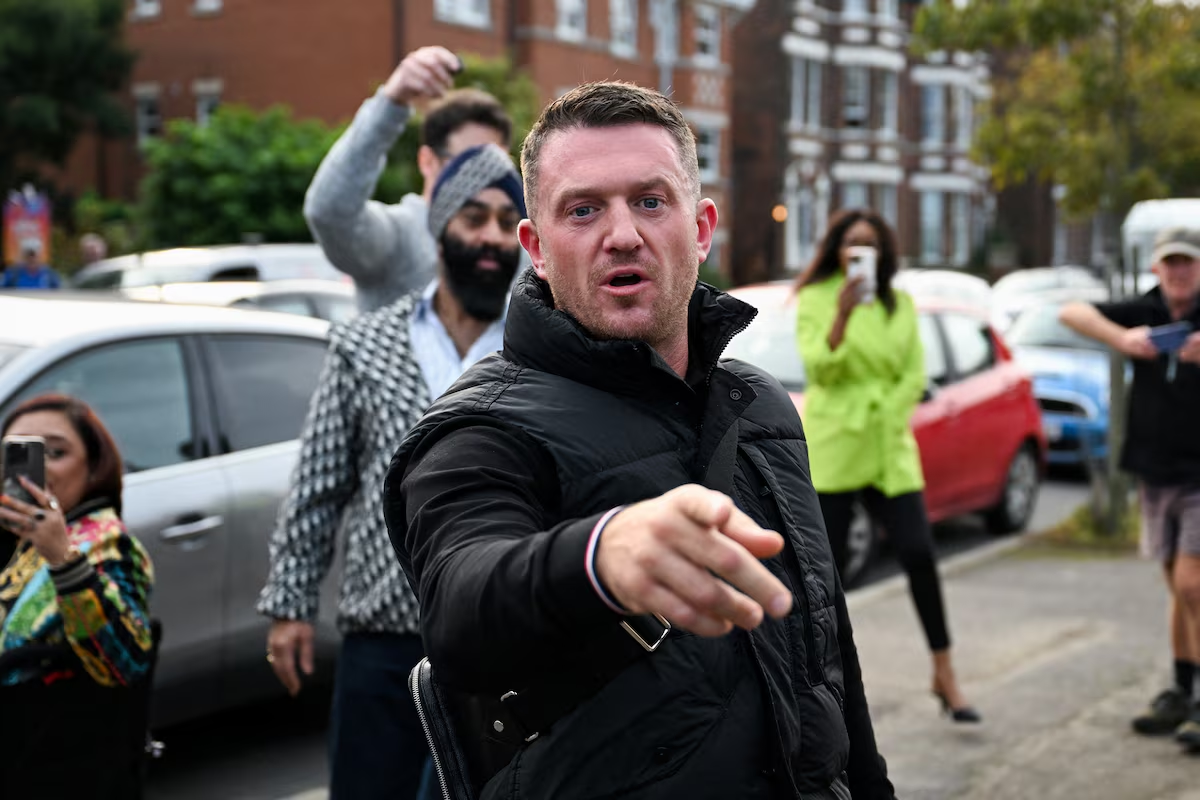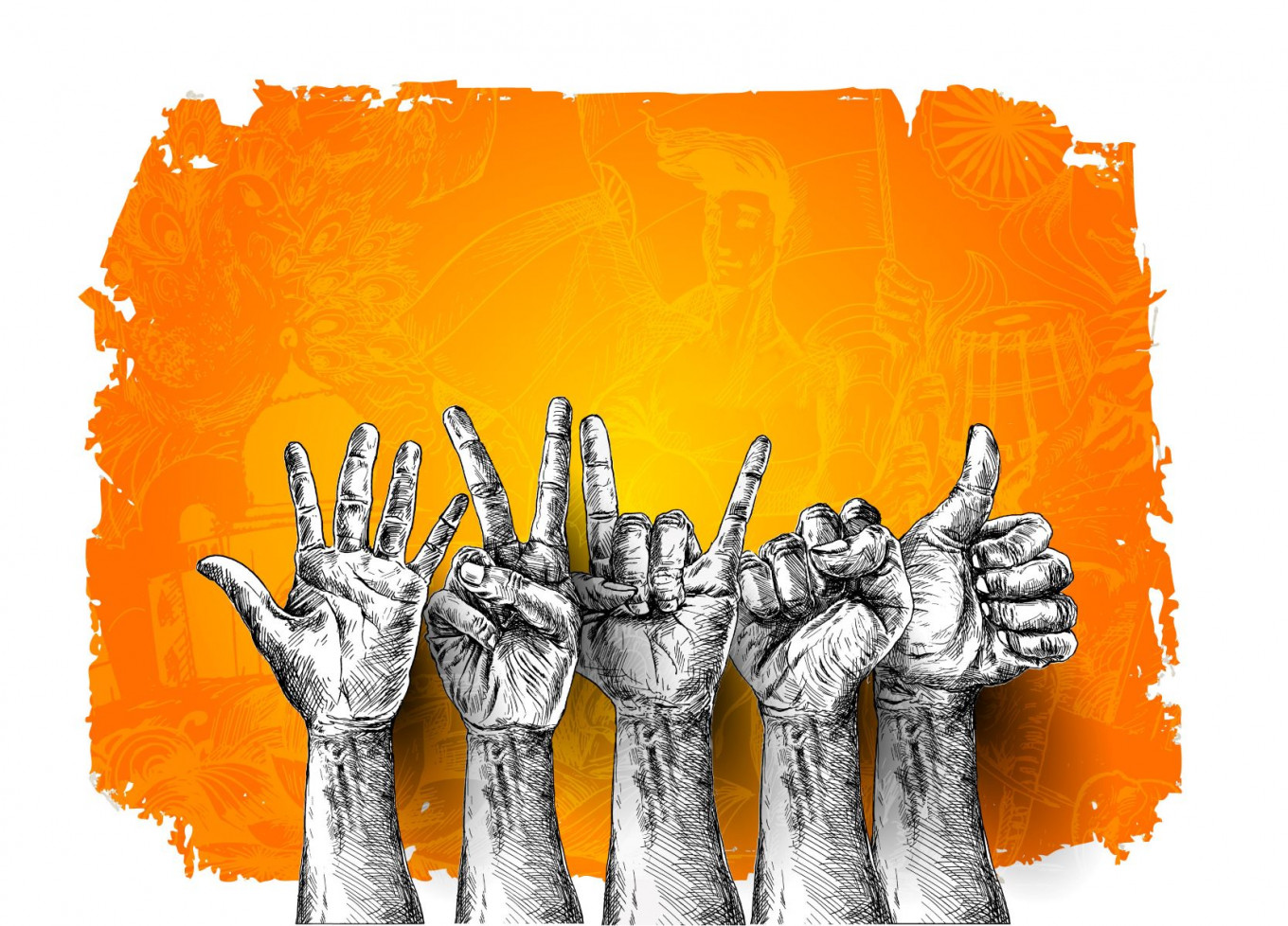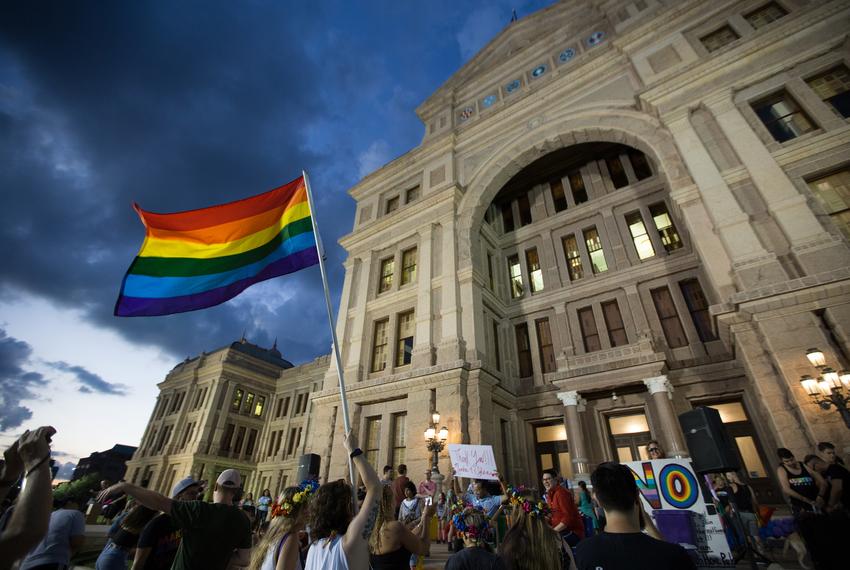On May 21, 2025, British anti-immigration and anti-Islam activist Stephen Yaxley-Lennon, widely known by his pseudonym Tommy Robinson, was charged with harassment causing fear of violence against two men. The charges stem from incidents alleged to have occurred between August 5 and 7, 2024, during a period of widespread civil unrest in the United Kingdom following the tragic murder of three young girls in Southport, northwest England. This article delves into the details of the case, explores the context of the riots, examines Yaxley-Lennon’s controversial public persona, and analyzes the broader socio-political implications of his actions and the legal proceedings against him.
Background of the Case
The Charges Against Stephen Yaxley-Lennon
The Crown Prosecution Service (CPS) announced on May 21, 2025, that Stephen Yaxley-Lennon, aged 42, had been charged with harassment causing fear of violence. According to a CPS spokesperson, the charges relate to incidents involving two men during a turbulent period in August 2024, when anti-immigration protests escalated into riots across several British towns and cities. The CPS statement was clear and concise:
“We have authorised the Metropolitan Police to charge Stephen Yaxley-Lennon, 42, with harassment causing fear of violence against two men.”The specifics of the alleged harassment have not been fully disclosed, but the timing of the incidents aligns with a period of heightened tension in the UK, suggesting a connection to the broader social unrest.
Context of the August 2024 Riots
The charges against Yaxley-Lennon are tied to events that unfolded in the wake of a horrific incident in Southport, where three young girls were murdered. This tragedy, which occurred in late July 2024, sparked widespread outrage and grief. However, it also became a flashpoint for anti-immigration sentiment, as misinformation about the perpetrator’s identity spread rapidly online. False claims that the suspect was an immigrant fueled protests, many of which turned violent. Towns and cities across the UK, including Southport, London, and Manchester, saw clashes between protesters, counter-protesters, and police, with reports of arson, looting, and attacks on minority communities.
During this period, Yaxley-Lennon, a prominent figure in the anti-immigration movement, was accused by some media outlets and politicians of exacerbating tensions through his inflammatory rhetoric. His social media posts and public statements, which often criticize immigration policies and Islam, were said to have contributed to the volatile atmosphere. While Yaxley-Lennon describes himself as a journalist exposing state wrongdoing, his detractors argue that his actions incite division and violence.
Who is Tommy Robinson?
Stephen Yaxley-Lennon’s Rise to Prominence
Stephen Yaxley-Lennon, born in Luton, England, in 1982, adopted the pseudonym Tommy Robinson to establish himself as a public figure. He first gained notoriety as a co-founder of the English Defence League (EDL), a far-right, anti-Islam organization formed in 2009. The EDL organized protests against what it described as the “Islamification” of Britain, often clashing with counter-protesters and drawing criticism for its xenophobic rhetoric. Yaxley-Lennon left the EDL in 2013, citing concerns about the group’s extremism, but continued to advocate similar views through other platforms.
Over the years, Yaxley-Lennon has positioned himself as a self-styled journalist and activist, using social media to reach a global audience. His supporters, including high-profile figures like U.S. billionaire Elon Musk, view him as a defender of free speech and a critic of government overreach. Critics, however, describe him as a provocateur who promotes division and misinformation. His activities have included producing documentaries, writing books, and speaking at international events, often focusing on issues like immigration, Islam, and perceived threats to British culture.
Legal Troubles and Public Persona
Yaxley-Lennon’s activism has frequently landed him in legal trouble. At the time of the harassment charges, he was already serving an 18-month prison sentence for contempt of court, related to breaches of reporting restrictions in a separate case. However, on May 20, 2025, he successfully appealed to have his sentence reduced, securing his release the following week. His legal battles have made him a polarizing figure: to his supporters, he is a martyr persecuted for his beliefs; to his critics, he is a repeat offender who flouts the law to advance his agenda.
The harassment charges add another layer to Yaxley-Lennon’s contentious public persona. The timing of the alleged offenses—during a period of national unrest—raises questions about the extent to which his actions may have contributed to the chaos. While he has not been formally charged with inciting the riots, the accusations of harassment suggest that his interactions with individuals during this period were perceived as threatening.
The Socio-Political Context
The Southport Murders and Their Aftermath
The murder of three young girls in Southport was a tragedy that shook the nation. The incident occurred at a dance class on July 29, 2024, and was initially reported as a random act of violence. However, false information circulated online, wrongly identifying the suspect as a Muslim immigrant. This misinformation, amplified by social media, sparked outrage among anti-immigration groups, leading to protests that quickly escalated into riots.
Research from the Institute for Strategic Dialogue (ISD), a think tank focused on extremism, found that online misinformation played a significant role in fueling the violence. The ISD’s report highlighted how false narratives about the Southport suspect spread across platforms like X, reaching millions of users within hours. Yaxley-Lennon, with his large online following, was among those accused of sharing content that contributed to the unrest, though he has denied directly inciting violence.
The Role of Social Media in Amplifying Tensions
Social media has become a double-edged sword in modern activism, enabling rapid dissemination of information but also amplifying misinformation and inflammatory rhetoric. Studies, such as those by the Pew Research Center, indicate that platforms like X can create echo chambers where polarizing views are reinforced. In Yaxley-Lennon’s case, his posts during the August 2024 riots reportedly reached hundreds of thousands of users, many of whom shared his content, further escalating tensions.
Elon Musk, who owns X and has publicly supported Yaxley-Lennon, has faced scrutiny for his platform’s role in the unrest. Critics argue that X’s algorithms prioritize engagement, often amplifying divisive content. Musk’s endorsement of Yaxley-Lennon has added a layer of complexity to the debate, raising questions about the responsibilities of platform owners in moderating harmful content.
Legal and Ethical Implications
The Harassment Charges: Legal Framework
In the UK, harassment causing fear of violence is a serious offense under the Protection from Harassment Act 1997. The charge requires evidence that the defendant’s actions caused the victims to fear that violence would be used against them on at least two occasions. The CPS’s decision to charge Yaxley-Lennon suggests that prosecutors believe there is sufficient evidence to meet this threshold. If convicted, he could face significant penalties, including imprisonment.
The timing of the charges, coinciding with Yaxley-Lennon’s imminent release from prison, has fueled speculation about political motivations. His supporters argue that the charges are an attempt to silence him, while critics contend that they reflect the authorities’ commitment to holding him accountable for his actions.
Freedom of Speech vs. Public Safety
Yaxley-Lennon’s case highlights the tension between freedom of speech and public safety. His supporters argue that he is being persecuted for expressing controversial views, a claim that resonates with broader debates about censorship and free expression. Organizations like the Free Speech Union have cited his case as an example of overreach by authorities, arguing that criminalizing speech risks stifling dissent.
However, others argue that Yaxley-Lennon’s rhetoric crosses a line into incitement. The UK’s incitement laws, which prohibit encouraging or assisting criminal acts, have been used to prosecute individuals whose words contribute to public disorder. While Yaxley-Lennon has not been charged with incitement in this case, the harassment charges suggest that his actions had a direct impact on individuals, raising questions about the boundaries of free speech.
Broader Implications for the UK
The Rise of Anti-Immigration Sentiment
The August 2024 riots reflect a broader rise in anti-immigration sentiment in the UK, fueled by economic pressures, cultural anxieties, and political rhetoric. Data from the UK’s Office for National Statistics shows that net migration reached record highs in recent years, prompting debates about border control and integration. Yaxley-Lennon’s activism taps into these concerns, resonating with those who feel marginalized by rapid demographic changes.
However, his critics argue that his rhetoric oversimplifies complex issues, scapegoating immigrants and Muslims for broader societal challenges. Studies, such as those by the Migration Observatory at the University of Oxford, suggest that immigration has both positive and negative economic impacts, but public perceptions are often shaped by media narratives rather than evidence.
The Role of Public Figures in Shaping Discourse
Yaxley-Lennon’s case underscores the power of public figures to shape discourse, particularly in the digital age. His ability to mobilize supporters through social media highlights the influence of non-traditional media figures. At the same time, it raises questions about accountability, as individuals like Yaxley-Lennon operate outside the editorial constraints of mainstream media.
The involvement of high-profile figures like Elon Musk further complicates the narrative. Musk’s support for Yaxley-Lennon has drawn attention to the role of global influencers in local conflicts, prompting calls for greater regulation of social media platforms.
Conclusion
The charges against Stephen Yaxley-Lennon, aka Tommy Robinson, represent a significant moment in the UK’s ongoing struggle with social cohesion, free speech, and public safety. The case, rooted in the violent unrest of August 2024, highlights the challenges of addressing divisive rhetoric in an era of rapid information dissemination. While Yaxley-Lennon’s supporters view him as a champion of free expression, his critics argue that his actions have real-world consequences, from harassment to public disorder.
As the legal proceedings unfold, the case will likely continue to spark debate about the balance between individual rights and collective security. It also serves as a reminder of the power of social media to amplify voices—both for better and for worse. In a polarized world, the story of Tommy Robinson is a microcosm of the broader tensions shaping modern societies.
























0 Comments